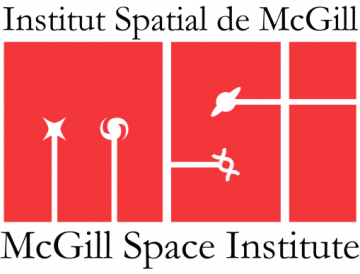2-3 June 2022 at McGill Space Institute

Artistic image inspired by a BHNS merger Artwork of a neutron star–black hole merger. Credit: Carl Knox, OzGrav-Swinburne University.
GWSkyNet
GWSkyNet, developed by [1], is a machine learning classifier designed to facilitate potential EM follow-up observations. It is capable of separating astrophysical events and instrumental artifacts. GWSkyNet can be operated in low-latency and provide, in seconds after an alert is published, information complementary to that released by the LIGO-Virgo-KAGRA (LVK) via the open public alerts (OPA).
The current classifier needs only the publicly available information from the OPA system. However, it can be expanded easily to intake other properties of a GW candidate. Of the 77 OPA* alerts published during O3, GWSkyNet has correctly classified 61, showing great scientific potential.
In preparation of O4, GWSkyNet is currently being developed as a low-latency annotation pipeline. It will be incorporated into the LVK low-latency framework. Another independent and separate pipeline with GWSkyNet, planned to run on the Treasure Map [2], is also being developed.
The success of GWSkyNet has motivated the development of an extension to a multi-class classifier, known as GWSkyNet-Multi [3], which is capable of determining whether the source of an OPA contains a neutron star. It has correctly classified 64 of 77 OPAs correctly for O3.
* In total, 80 OPAs were released during O3, but GWSkyNet was only applied to OPAs with FITS files generated with Bayestar [4, 5].
[1] Cabero, M., Mahabal, A., & McIver, J. 2020, ApJL, 904, L9
[2] Wyatt, S. D., Tohuvavohu, A., Arcavi, I., et al. 2020, ApJ, 894, 127
[3] Abbott, T. C., Buffaz, E., Vieira, N., et al. 2020, ApJ, 927, 232.
[4] Singer, L. P., Chen, H.-Y., Holz, D. E., et al. 2016, ApJL, 829, L15
[5] Singer, L. P., & Price, L. R. 2016, PhRvD, 93, 024013
The workshop
This workshop brings together experts on gravitational wave astronomy, multi-messenger astronomy with gravitational waves and machine learning to explore possible paths for the further development of GWSkyNet beyond O4, as well as novel applications of machine learning techniques to the study of gravitational waves. In particular, the workshop will have a focus on electromagnetic follow-up observations of gravitational wave events. This workshop will be more discussion-focused where attendees are encouraged to participate in a series of related discussions related and to come up with new ideas.
This workshop is generously supported by the McGill Space Institute, the University of British Columbia, and the New Frontiers in Research Fund. Thanks to this funding, there will not be a registration fee for this workshop, but registration by May 18th is highly encouraged. The registration form is available near the top of the page. Coffee, breakfast and lunch will be provided on June 2nd and 3rd, and a dinner on June 2nd. Attendees are responsible for their travel expenses and accommodations.
For any questions or concerns, please do not hesitate to contact Mervyn Chan at mervync[at]phas.ubc.ca
This event is supported by



Contact